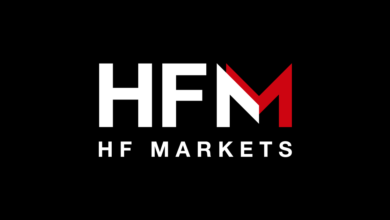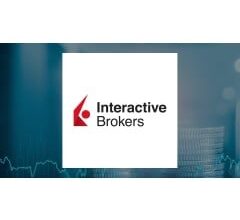Crypto Broker Reporting Regulations Should Avoid Mismatch Risk
The IRS’s April 19 release of the draft Form 1099-DA—which will be used to report certain sales and exchanges of digital assets on or after Jan. 1, 2025—may indicate that the IRS is close to finalizing proposed regulations extending information-reporting rules under tax code Section 6045 to crypto and other digital asset transactions.
The broad definition of “broker” in the proposed regulations creates the possibility that multiple brokers will have to issue information returns to the same taxpayer for the same transaction. This will create confusion and unfairly burden taxpayers.
The proposed regulations significantly expand the definition of “broker” under Section 6045 to include most participants involved in a transaction in which digital assets are sold or exchanged for services or other assets.
Under the proposed regulations, each broker will be required to report information regarding the customer and the transaction with respect to which they were a broker on Form 1099-DA. However, the draft form doesn’t reflect the comments urging the IRS to limit scope of the term “broker” and limit the kinds of transactions subject to reporting.
In the draft Form 1099-DA, the “broker type” box lists unhosted wallet providers, digital asset payment processors, kiosk operators, and “others” as brokers subject to reporting. This description aligns with the IRS’s expansive approach to defining “broker” in the proposed regulations and may signal that the IRS doesn’t intend to narrow the definition in the final regulations.
If the IRS doesn’t narrow the term, at least two issues are likely to arise under the proposed reporting system.
First, the current proposal likely requires multiple intermediaries who facilitate a single transaction to each issue a Form 1099-DA. However, not all intermediaries may have access to the same information needed to accurately complete the form.
As a result, taxpayers would receive duplicative reports for the same transactions, as well as possibly inconsistent reports. Such reporting may cause a taxpayer to inadvertently report each Form 1099-DA received as separate items of income, causing the taxpayer to over report income and pay tax.
Second, even where a taxpayer can reconcile all the Forms 1099-DA received and report the transaction only once, the IRS could flag a taxpayer’s return for review due to discrepancies that would arise from brokers reporting the same transaction with different information. This would cause a perceived mismatch between the information the IRS received and the taxpayer’s return.
To avoid these risks, the final regulations should adopt a rule designed to maximize the likelihood that only a single Form 1099-DA will be issued to a person engaging in the sale or exchange of a digital asset.
In that case, the IRS would be less burdened by multiple or conflicting reports relating to a single transaction, and taxpayers wouldn’t risk reporting the same income or loss multiple times. The reporting problem doesn’t exist in traditional financial markets because the IRS has adopted the “multiple broker” rule. That rule limits reporting for securities sales to only that broker nearest to the customer, which prevents multiple brokers from issuing duplicative 1099s for any given transaction.
To solve the issue of duplicative and potentially inconsistent reporting of digital assets, the New York State Bar Association has proposed creating a qualified digital asset reporting person, or QDARP. This would be a third-party service provider that would enter into an agreement with the IRS and would assume all reporting obligations to the IRS and agree to regular audits.
The QDARP would be responsible for gathering and verifying information about taxpayers transacting in the digital assets marketplace. It also would receive, aggregate, and reconcile information from various digital asset middlemen or other brokers that may touch any given sale or other disposition of digital assets.
Any would-be broker would have the option under the QDARP system to either assume responsibility for reporting themselves, or offload their reporting obligations to the QDARP by an agreement wherein they would provide the QDARP with all needed information. The convenience of the QDARP system would likely be attractive to many market participants looking for ways to alleviate certain burdens of tax compliance.
A QDARP would resemble other tax compliance systems that the IRS has relied on. For the purposes of withholding and reporting on fixed, determinable, annual, or periodical income paid to non-US persons, the IRS allows payors of such income to rely on services of a qualified intermediary to meet their reporting and withholding obligations.
Similarly, the IRS allows employers to meet their payroll withholding and reporting obligations through contracting with a certified professional employer organization.
If QDARP or a similar concept isn’t adopted in the final regulations, taxpayers should consider working with digital asset transaction aggregators. These third-party companies compile and reconcile digital asset transactions so that taxpayers can more accurately report their basis, gains, and losses.
While such tools will likely help taxpayers accurately report their digital asset earnings, they won’t prevent the IRS from potentially challenging such returns due to mismatches with the Form 1099-DAs provided by brokers.
Taxpayers’ and the digital asset industry’s ability to comply with the new reporting policy will fall on the IRS’s willingness to implement the comments on the proposed regulations—especially those related to clarifying the types of brokers subject to reporting.
This article does not necessarily reflect the opinion of Bloomberg Industry Group, Inc., the publisher of Bloomberg Law and Bloomberg Tax, or its owners.
Author Information
Devon Bodoh is partner in Weil, Gotshal & Manges’ tax department and is based in Miami and Washington, D.C.
Theo Agbi is an associate in Weil, Gotshal & Manges’ tax department and is based in Miami.
Carlos Parra is an associate in Weil, Gotshal & Manges’ tax department and is based in Miami.
Write for Us: Author Guidelines





